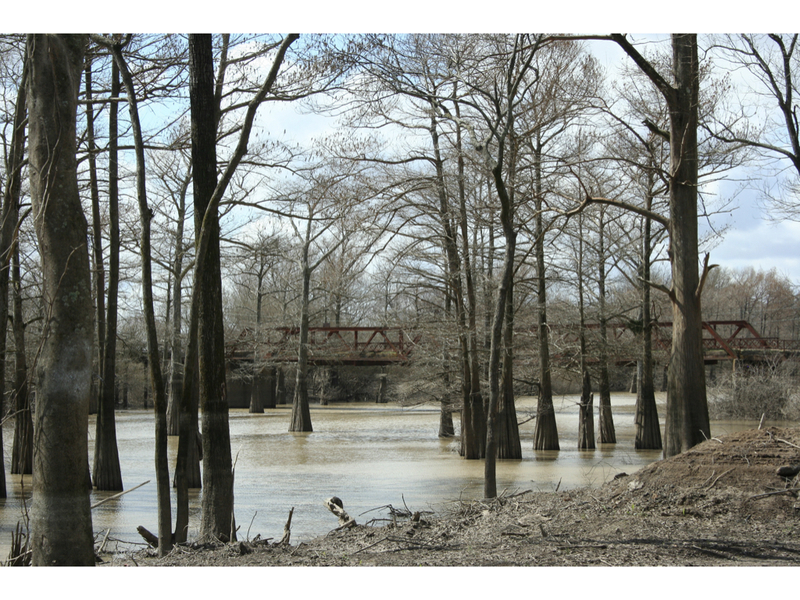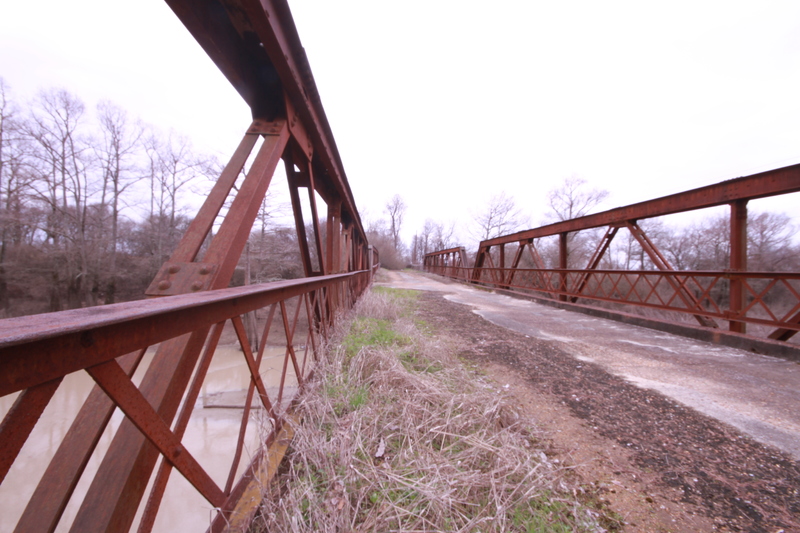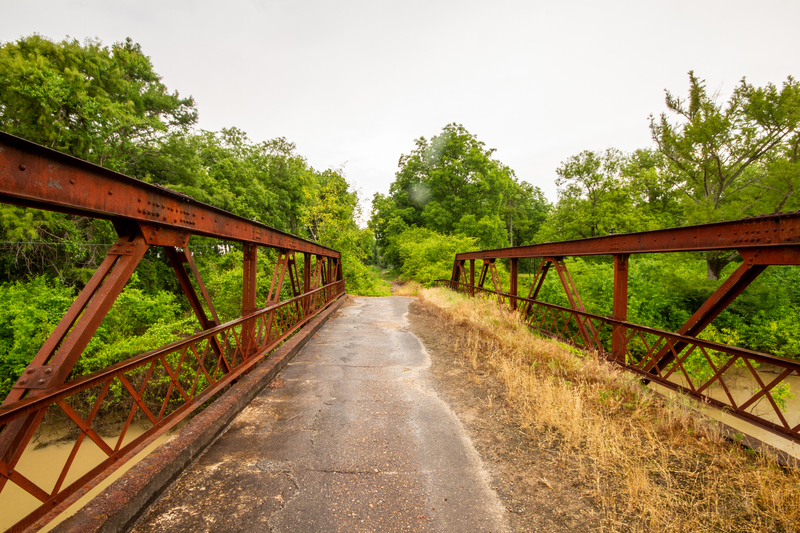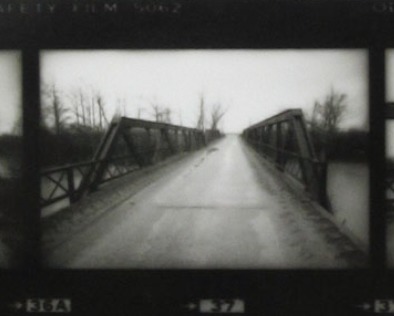Black Bayou Bridge
Till's body may have been dropped in the water from this bridge.

Many people believe that this bridge may have been the spot that the body of Emmett Till was dropped into the water. Approximately two miles east of this spot, the Bayou spills into the Tallahatchie River. At the confluence of the two rivers is a site called Graball Landing; it is marked by an Emmett Till Memorial Commission sign as the site where Till’s body may have been recovered from the river.
The strongest argument in favor of the theory that Till was thrown off this bridge and recovered at Graball Landing is its intuitiveness. This site is immediately adjacent to both J. W. Milam’s home (where Till’s clothes were burned) and the Glendora Cotton Gin (where they could have easily secured the fan with the help of Milam’s neighbor Elmer Kimbell, who worked at the gin). Because the murderers were in a race with daybreak to dispose of the body as quickly as possible, they certainly would have appreciated the proximity of this bridge. Heightening the credibility of this theory is the fact that this road was closed permanently sometime in 1955.
Beyond the intuitive convenience of the theory, the Black Bayou Bridge theory has a strong advocate in Glendora Mayor Johnny B. Thomas. Thomas has used the Emmett Till Historic Intrepid Center (a Till museum just up the road) to advocate for this theory for years.
Thomas has a vested interest in this site. In 2010, the Mississippi Development Authority advised him that Emmett Till tourism represented the best chance at economic development for the town. The more the story of Till's murder centers on Glendora, the more tourists will have reason to come, and the more economic development will follow.
But quite apart from matters of tourism, Thomas does have an interesting story. He claims that his father was Henry Lee Loggins—Milam’s “right hand” man who was widely rumored to be personally involved in the murder.
According to African American journalist James L. Hicks, Loggins and Levi “Too Tight” Collins (both black men) were forced by J. W. Milam to participate in the torture and murder of Emmett Till before being jailed in Charleston on trumped up charges to keep them away from the investigation. Defense attorney J. J. Breland later confirmed that Loggins and Collins were held on false charges to prevent them from testifying.
Although Loggins publicly denied all involvement his entire life (most publicly on 60 Minutes), there are rumors that he made a deathbed confession to his son. If true, it means that Thomas’s claim that the body was thrown over this bridge might be based on Loggin's personal involvement.
Images




